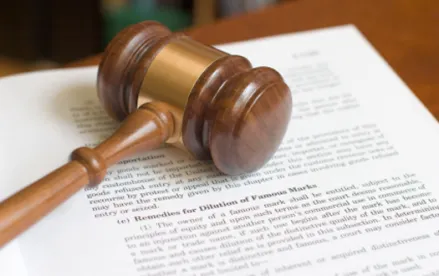Addressing for the first time whether International Trade Commission (ITC) trademark infringement rulings have a preclusive effect on district court litigation, the US Court of Appeals for the Federal Circuit affirmed the ITC’s determination on infringement, but held that such a determination did not preclude the issue from being litigated in a co-pending district court case. Swagway, LLC v. ITC, Case No. 18-1672 (Fed. Cir. May 9, 2019) (Clevenger, J).
Segway, DEKA Products Limited Partnership and Ninebot (Tianjin) Technology (collectively, Segway) filed a complaint with the ITC in May 2016 alleging that Swagway’s self-balancing hoverboards, sold in connection with its SWAGWAY X1 and SWAGTRON T1 and T3 trademarks, infringed six Segway patents and two Segway trademarks. Swagway later moved for termination of the trademark infringement investigation based on a stipulated consent order that stated “that Swagway would not sell or import ‘SWAGWAY-branded personal transporter products as well as all components thereof, packaging and manuals therefor.’” Segway opposed, arguing that the consent order addressed only some of the claims and products at issue in the investigation, and that entering the consent order would allow Swagway to (re)litigate the issue of trademark infringement in district court.
The administrative law judge (ALJ) issued an initial determination finding that while Swagway did not infringe the Segway patents, its use of the SWAGWAY trademarks did infringe Segway’s SEGWAY trademarks. Without explicitly addressing Swagway’s motion for termination based on the consent order stipulation, the initial determination stated that “any pending motion that has not been adjudicated is denied.” Swagway appealed the denial of its consent order motion and the determination on trademark infringement to the full Commission.
The Commission declined to review the ALJ’s denial of the consent order motion, modified the initial determination to state that the evidence of actual confusion “did not weigh in favor of likelihood of confusion,” but nonetheless upheld the ALJ’s determination on likelihood of confusion and trademark infringement. Swagway appealed to the Federal Circuit.
With respect to trademark infringement, Swagway contended that the lack of actual confusion is “especially probative” and “essentially dispositive in this case.” The Federal Circuit, however, found that Swagway had not presented sufficient concurrent use evidence to show that this factor should weigh in its favor. Swagway additionally argued that the ITC failed to accurately assess the likelihood of confusion factors and that Segway’s lack of survey evidence should create an adverse inference that the survey evidence would have been damaging to Segway’s claims. On this issue, the Court concluded that the ITC correctly interpreted the likelihood of confusion factors and further observed that “the adverse inference Swagway encourages us to adopt belies our precedent.”
Swagway also took issue with the ITC’s refusal to provide any basis for its denial of the consent order motion. Although the ITC’s order and Swagway’s consent order appeared very similar “as a practical matter,” Swagway believed that their ultimate effects rendered them very different: the ITC’s order would have a preclusive effect, whereas the consent order would circumvent any issue preclusion in the co-pending district court case. The Federal Circuit explained that Swagway misapprehended the preclusive effect of any ITC determination on trademarks in the corresponding district court case: “We see no reason to differentiate between the effect of the [ITC’s] patent-based decisions and the [ITC’s] decisions regarding trademarks. . . . [T]he [ITC’s] decisions pertaining to trademark infringement or validity are not entitled to preclusive effect in the district courts.”




 />i
/>i

